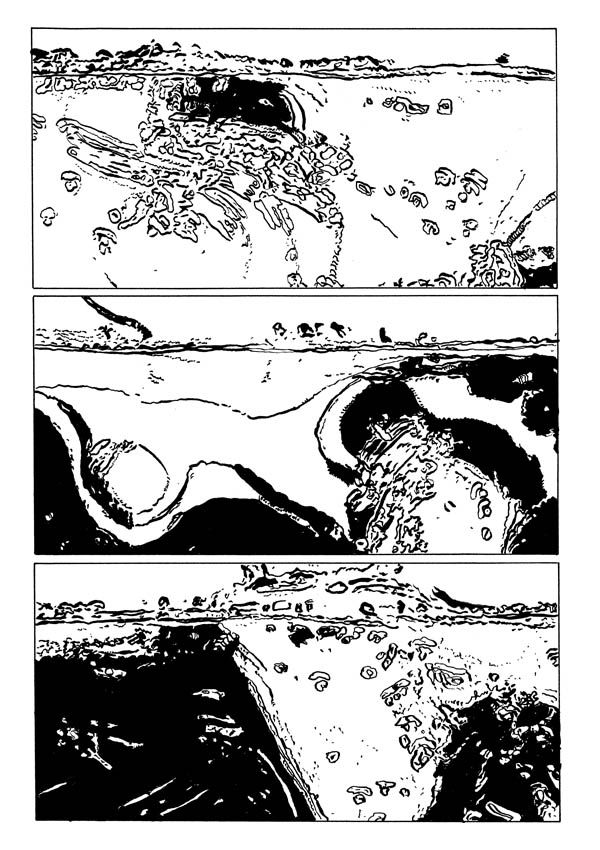
(page 3)
Here is the direct link to the pdf, but really you should explore the entire archive, beautifully curated by Derek Beaulieu. Thanks, Derek!
EDIT: Derek wanted the work to be presented on its own merits, with little accompanying text, a decision with which I fully agree. Nevertheless, some of you might be interested in the text that accompanied the piece when it was published in Blurred Vision 4, in 2008. The editor, Kevin Mutch, asked all contributors to write brief introductions to their pieces, and this is what I came up with:
For a while now I have been interested in the possibility of abstract comics, and especially in playing with shapes that are just under the threshold of legibility: shapes that, ideally, will suggest several representational alternatives but will not allow the reader to settle on any single interpretation. In such cases, an added title may help orient the reading, but hopefully it too will remain vague enough not to straitjacket the strip. “Expedition to the Interior” is an old expression, often encountered, for example, in nineteenth-century reports to the Royal Geographic Society, denoting the exploration of previously uncharted lands, far from the well-known coastlines—lands such as the Congo, the Amazon forest, or the central territories of Australia. Alternately, it could also refer to a journey to the center of the earth, perhaps one of the Jules Verne sort. Additionally, I hope the word “Expedition” will retain here its military resonance.
I had already penciled the strip and was inking the second or third page when I realized that I was channeling—or, to sound more modest, maybe I should say “imitating,” or “inspired by”—Mike Royer inking Jack Kirby. The further pages—which I inked in order—show the direct influence of these two great artists, and it may be that from the very beginning, albeit unconsciously, I was following in my own way their example.
Abstract comics, if they do nothing else, can show us that, beyond the storyline, comics also lead the reader from one panel to the next, from one page to the next, by virtue of a formal force that I would dub “sequential energy.” Kirby’s work—as well as Steve Ditko’s—par excellence displays such energy, which may lie at the very essence of what the medium of comics is. I’d like to think that all I have done here is to foreground this force, in the absence of any words, plot, or recognizable characters or settings.